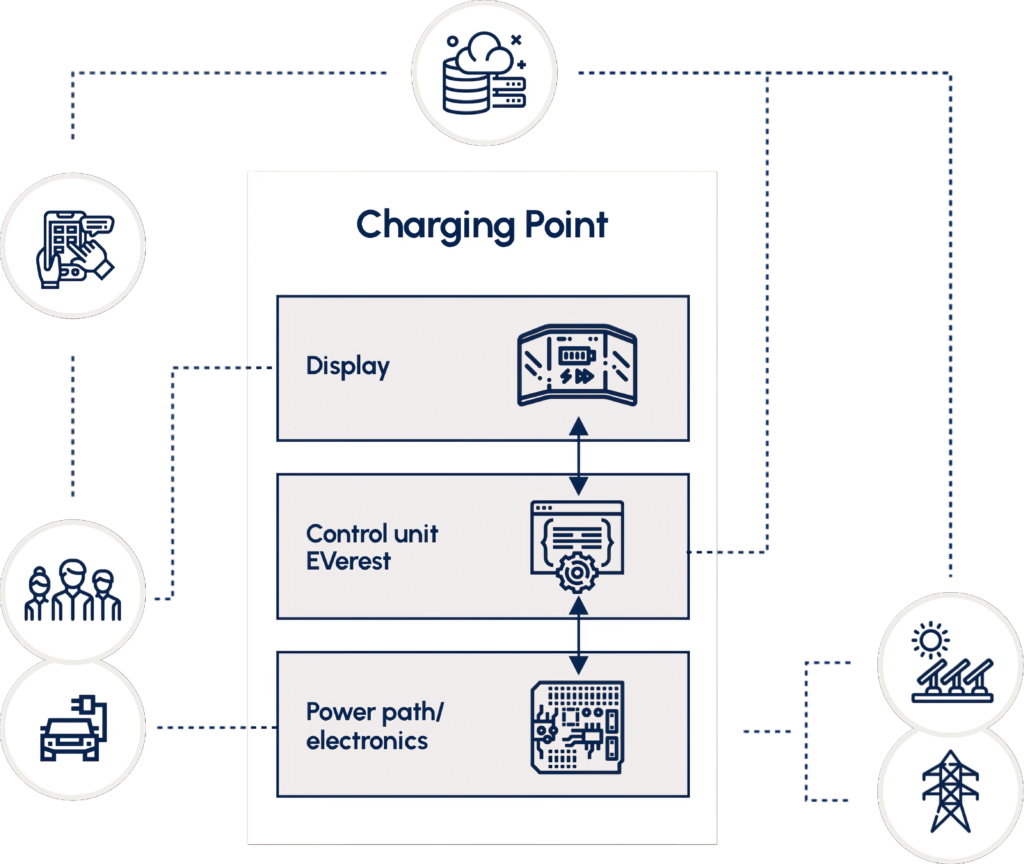EV code looks to set station standard
Pionix in Germany has developed an open source software stack to address the fragmentation of EV charging infrastructure (writes Nick Flaherty).

The EVerest software is a minimal Linux system that can run on any device, from chargers using a home socket to public DC charging. It uses a modular, customisable software stack that abstracts the complexity of multiple standards and use-cases. The modules can be customised for new hardware, for local energy management, integration with photovoltaic solar panels or for the specific requirements of a local power grid.
The aim is to create a new standard operating system of charging stations, in the same way that Android is a standard operating system for mobile devices with millions of apps.
EVerest manages the comms around energy between different technology providers based on the EN IEC 61851 and ISO 15118 standards in a vehicle, Modbus and Sunspec bus interconnects in the charger for local energy generation and batteries, as well as OCCP1.6 for cloud back-end and payment systems. It also has modules for specific grid constraints and allows developers to customise the charger’s user interface.
It acts as a smart interconnection layer, with the modules orchestrated by the EVerest Dependency Manager (EDM). Each module provides a certain set of capabilities and is launched by the EDM, with the comms between modules handled by a local server that use the MQTT protocol. Modules can be configured to provide specific features to other modules, and this is defined in a module manifest files and a set-up specific system configuration, which are both written in the JSON scripting language.
This enables easy adjustment to specific local circumstances, for example if different hardware modules are used underneath or a local solar installation needs adjusting on how the connectivity is established. Even if the local power supply is constrained and needs to be shared with other consumers, this can be adapted by using the EVerest framework.
EVerest is the 13th project being hosted by LF Energy, the part of the Linux Foundation with a focus on power systems. It provides a neutral, collaborative community to build and share the modules, which might have been developed in other projects such as microgrids or photovoltaics.
ONLINE PARTNERS































